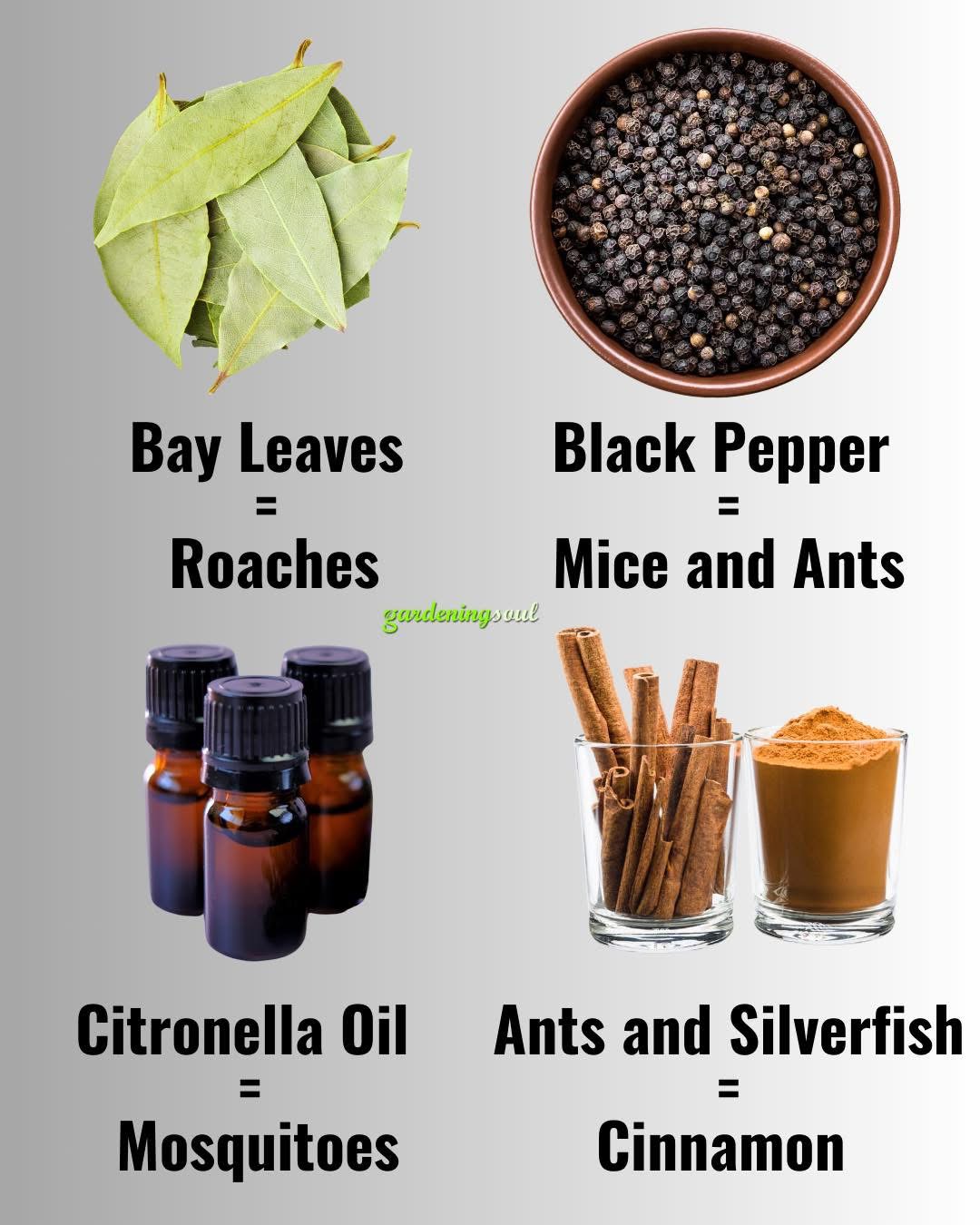Advertissement
1. Bay Leaves – Roach Repellent You Can Eat
2. Citronella Oil – Your Outdoor Mosquito Shield
Advertissement
3. Black Pepper – A Barrier Against Mice and Ants
4. Peppermint Oil – Nature’s Multi-Pest Fighter
5. Cucumber Peels – Simple Yet Effective
Place fresh cucumber peels near entry points or pest-prone areas.
Replace them every 1–2 days before they spoil.
Pro tip: Combine cucumber with bay leaves to double down on roach defense.
6. Vinegar Spray – Disrupt Ant Trails and Kill Gnats
White vinegar not only wipes out scent trails left by ants but also kills soft-bodied pests like gnats on contact.
How to use:
Mix equal parts vinegar and water in a spray bottle.
Spray on counters, along ant trails, and near drains.
Use full-strength vinegar for stubborn infestations.
Caution: Don’t use vinegar on marble or other natural stone surfaces.
7. Garlic Spray – Great for the Garden (and You)
Garlic’s strong smell comes from sulfur compounds that bugs despise. It works against aphids, mosquitoes, and more.
How to use:
Blend 2 garlic bulbs with 2 cups of water, strain, and mix with a gallon of water.
Spray weekly on plants and garden borders.
Plant garlic near patios to keep mosquitoes away.
8. Cinnamon – Keep Ants and Silverfish Out
The warm, spicy smell of cinnamon overwhelms bugs like ants and silverfish. It’s also antifungal—perfect for damp areas.
How to use:
Sprinkle ground cinnamon along baseboards and inside cabinets.
Add cinnamon oil to water and spray in pest-prone spots.
9. Cloves – A Natural Moth and Fly Repellent
Whole cloves are rich in eugenol, a compound that repels flying insects like flies and moths.
How to use:
Insert cloves into citrus peels and leave them out as natural insect fresheners.
Place sachets of whole cloves in closets or drawers.
Simmer cloves in water for a fly-repelling air freshener.
10. Used Coffee Grounds – Slug and Ant Blocker
Coffee grounds are acidic and gritty—perfect for repelling slugs and deterring ants.
How to use:
Scatter grounds around your garden or potted plants.
Leave a small dish of grounds near indoor ant trails.
Eco bonus: Coffee grounds improve compost and soil quality, too!
Bonus: Lemon Juice – Citrus-Fresh Pest Control
Lemon juice cuts grease and leaves a scent that fleas and roaches avoid.
How to use:
Mix lemon juice with water to clean floors and countertops.
Spray around cracks, baseboards, and windows.
Go Green and Pest-Free
Natural pest repellents offer a gentle, chemical-free way to protect your home and garden. While you may need to reapply them more often than commercial sprays, the benefits to your health, pets, and the planet are worth it.
Try adding a few of these remedies to your routine—and enjoy a fresher, safer way to keep unwanted visitors out.
